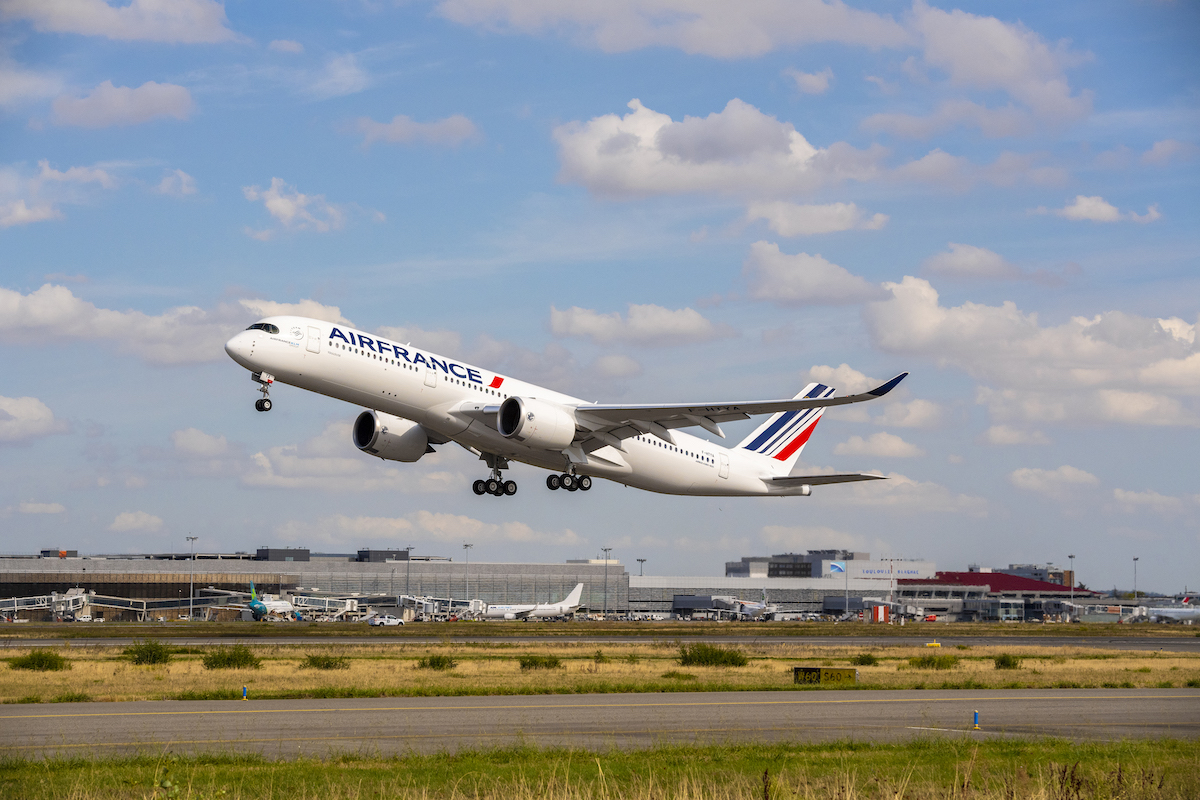“Committed to protecting the environment: travel better and sustainably.” “Fly more sustainably.” “Environmental Advocacy.”
These are some of the phrases in Google advertisements by Air France, Lufthansa and Etihad that got them banned by the U.K.’s Advertising Standards Authority.
In three rulings Wednesday, the ASA found that the airlines had given “a misleading impression” of their environmental impact.
Etihad’s ad juxtaposed the phrase “total peace of mind” with “environmental advocacy,” which caught the eye of the U.K. advertising watchdog.
“We had not seen any evidence that they were engaged in such advocacy, or that they actively worked to protect the environment in a way that meant consumers could use their services with ‘Total Peace Of Mind’ with regard to the environmental impact of doing so,” the ASA said in its ruling.
Lufthansa’s ad highlighted “Fly more sustainably” in reference to its “green fares” that it claimed reduce CO2 emissions by 20%. But the ASA said the Lufthansa ad failed to clarify how passengers could fly more sustainably.
The ASA also found Air France’s use of the phrases “Air France is committed to protecting the environment” and “travel better and sustainably” was misleading.
Etihad and Lufthansa took down the ads following the ruling. The ASA said Air France “did not provide a substantive response” to its ruling.
Air France said the ad was made by an artificial intelligence tool, based on a few keywords. The French carrier told Skift that the ad only targeted customers in the U.K. and only 80 people saw it.
“The ad in question, which stated ‘Air France is committed to protecting the environment: travel better and sustainably,’ was generated by an artificial intelligence tool, based on keywords entered,” Air France said in a statement.
Air France said it changed the metrics for generating online ads following the ruling.
“As soon as the ASA decision was announced, Air France changed the parameters for creating online ads to ensure that such an event could not happen again,” Air France continued.
An Etihad spokesperson reiterated the airline’s sustainability initiatives, pointing to its investments in fuel-efficient aircraft, research into sustainable aviation fuel and its carbon offset program.
“The airline will continue to take bold and innovative steps including partnering with aircraft and engine manufacturers, sustainable fuel suppliers, academia and innovators to make flying more sustainable than it would be without such steps,” the spokesperson said in a statement.
Similarly, Lufthansa cited its ambitious climate goals, which include achieving carbon neutrality by 2050.
“The Lufthansa Group relies on a continuous dialogue and regularly informs its customers, stakeholders, and the interested public through various channels about its responsibility to reduce the environmental impact of flying,” the German airline said.
A Difficult Road to Sustainability for the Airline Industry
“Greenwashing,” when companies make inflated claims about their environmental friendliness, is not new to the airline industry. European regulatory agencies have slammed airlines over ads that tout their commitment to protecting the environment.
In the U.S., Delta Air Lines faced a class action lawsuit in California after it claimed it was the world’s “first carbon neutral airline.” Delta asked a federal judge to dismiss the lawsuit in August, according to Reuters.
As climate change worsens, governments in the U.S. and Europe have put pressure on the airline industry — which emits nearly one billion metric tons in CO2 emissions a year.
One potential solution is sustainable aviation fuel, known as SAFs, which is made from waste products like cooking oil, feed stock, animal waste and other solid waste products. But SAFs are expensive to produce and have so far been difficult to scale. Commercial aircraft are also still not certified to fly using a blend of more than 50% SAF.
The airline industry is still confident that SAFs will help it reach its goal of net zero emissions by 2050.
Another solution has been carbon offsets, credits that customers can pay extra for when purchasing airfare. Airlines claim that these credits go toward reducing carbon elsewhere.
But the effectiveness of carbon offsets has been debatable. A ProPublica investigation from 2019 found that many of the projects these credits went toward overstated their emissions reductions.
Subscribe to Skift Pro to get unlimited access to stories like these
{{monthly_count}} of {{monthly_limit}} Free Stories Read
Subscribe NowAlready a member? Sign in here
Subscribe to Skift Pro to get unlimited access to stories like these
Your story count resets on {{monthly_reset}}
Already a member? Sign in here
Subscribe to Skift Pro to get unlimited access to stories like these
Already a member? Sign in here
